Divorce and bankruptcy are two of the most stressful life events a person can face. Unfortunately, they often go hand in hand. Divorce can put an enormous strain on your finances, with legal fees, spousal support, and dividing up assets, all while adjusting to living on a single income. For many, filing for bankruptcy after divorce becomes necessary to handle the overwhelming financial burden that divorce can bring.
At Nicole Metzger Law, we understand that the combination of divorce and bankruptcy can feel like a double blow. The good news is that bankruptcy can offer the fresh start you need to move forward with financial stability after a divorce. This article will walk you through what to expect when filing for bankruptcy after divorce, how it can help you manage debt, and how we can guide you through the process.
The Financial Impact of Divorce
Before we dive into bankruptcy after divorce, it’s important to understand how divorce can lead to financial hardship:
- Legal Costs: Divorce often involves significant legal fees, particularly if there are disputes over child custody, alimony, or the division of assets.
- Division of Assets and Debt: In divorce, assets and debts are divided between spouses, which can lead to a significant reduction in financial resources and increased debt burden for both parties.
- Alimony and Child Support: One spouse may be required to pay alimony or child support, which can strain their budget and make it difficult to cover other living expenses or existing debt.
- Single Income: Adjusting to life on a single income after divorce can make it challenging to meet financial obligations, particularly if one spouse was previously dependent on the other for financial support.
These factors can create a perfect storm of financial pressure, leading some individuals to seek relief through bankruptcy.
Filing for Bankruptcy Before or After Divorce: What’s the Best Timing?
One of the most common questions we receive at Nicole Metzger Law is whether it’s better to file for bankruptcy before or after a divorce. The answer depends on your unique circumstances, but here are some things to consider:
Filing for Bankruptcy Before Divorce
If you and your spouse are both facing significant debt, it may make sense to file for bankruptcy jointly before the divorce is finalized. Filing jointly can offer several advantages:
- Cost Savings: Filing for bankruptcy jointly allows you to save on court fees, legal fees, and administrative costs, as you’ll only have one bankruptcy case to manage instead of two separate cases.
- Simplifying Debt Division: By discharging debts through bankruptcy before the divorce, you can reduce the number of debts that need to be divided during the divorce settlement.
- Better Bankruptcy Options: Depending on your combined income, you may qualify for Chapter 7 bankruptcy, which discharges unsecured debts more quickly. Filing separately may push you into Chapter 13 bankruptcy, which involves a repayment plan, if your income is too high on your own.
That said, filing for bankruptcy before divorce isn’t always feasible. If your relationship with your spouse is contentious, or if there’s an urgent need to finalize the divorce, it may make more sense to wait until after the divorce to file individually.
Filing for Bankruptcy After Divorce
If you’re already divorced or nearing the end of your divorce proceedings, you can still file for bankruptcy on your own to eliminate debt. This approach may be preferable if:
- You and Your Spouse Have Separate Debts: If your debts are mostly separate from your spouse’s, it might make sense to file for bankruptcy on your own after the divorce.
- You’re Already Divorced: If your divorce is already finalized, you’ll need to file for bankruptcy separately. Filing post-divorce gives you the opportunity to assess your financial situation and determine how best to handle your individual debts.
At Nicole Metzger Law, we’ll work with you to determine the right timing for filing based on your circumstances, whether that’s before or after your divorce is finalized.
How Bankruptcy Affects Alimony and Child Support
It’s essential to understand that bankruptcy does not eliminate obligations related to alimony or child support. Under bankruptcy law, these debts are classified as non-dischargeable, meaning they cannot be wiped out by a bankruptcy filing.
If you owe alimony or child support and are unable to keep up with payments, bankruptcy can still help by freeing up money that would otherwise go toward other debts. Discharging unsecured debts like credit card balances, medical bills, and personal loans can make it easier to meet your obligations to your ex-spouse or children.
At Nicole Metzger Law, we’ll work with you to ensure that your bankruptcy filing addresses your debt obligations without jeopardizing your ability to meet alimony or child support payments.
Which Type of Bankruptcy Should You File After Divorce?
The two most common types of personal bankruptcy are Chapter 7 and Chapter 13. Each offers different advantages depending on your financial situation, and the type of bankruptcy you file can significantly impact your path forward after divorce.
Chapter 7 Bankruptcy
Chapter 7 bankruptcy, also known as “liquidation bankruptcy,” is the faster option and typically takes four to six months to complete. In Chapter 7, non-exempt assets are sold (if you have any) to pay off creditors, and most unsecured debts are discharged, giving you a fresh financial start.
Here’s why Chapter 7 bankruptcy might be a good option after divorce:
- Quick Discharge of Debt: Chapter 7 allows you to discharge unsecured debts quickly, helping you get back on your feet sooner after divorce.
- No Repayment Plan: Unlike Chapter 13, there’s no repayment plan, which means you don’t have to commit to long-term payments. This can be especially helpful if your income has decreased after the divorce. The only payments needed would be for any non-exempt assets you choose to keep.
- Protecting Exempt Property: Most people who file for Chapter 7 are able to keep exempt property such as their home, car, and personal belongings. At Nicole Metzger Law, we’ll help you understand which of your assets are protected, and which you may choose to keep or forfeit.
However, to qualify for Chapter 7, you’ll need to pass a means test that assesses your income level. If your income is too high, you may need to consider Chapter 13 instead.
Chapter 13 Bankruptcy
Chapter 13 bankruptcy is also known as “reorganization bankruptcy.” In Chapter 13, you’ll create a repayment plan to pay back some or all of your debts over three to five years. This option is better for individuals with steady income who want to keep assets that might otherwise be sold in Chapter 7.
Here’s why Chapter 13 bankruptcy might work for you after divorce:
- Catch Up on Missed Payments: If you’ve fallen behind on mortgage or car payments due to divorce, Chapter 13 allows you to catch up on those payments over time while keeping your home or vehicle.
- Keep Your Assets: Chapter 13 doesn’t require the liquidation of assets, making it a good choice if you have significant property you want to protect.
- Consolidate Debts: Chapter 13 consolidates your debts into a manageable payment plan, which can help if you’re juggling multiple obligations after divorce.
At Nicole Metzger Law, we’ll assess your financial situation and guide you toward the bankruptcy option that best aligns with your post-divorce financial goals.
Dealing with Joint Debt After Divorce
If you and your ex-spouse accumulated joint debt during the marriage, it’s crucial to understand how that debt will be handled in bankruptcy. Joint debts remain the responsibility of both parties, even after divorce, and creditors can pursue either spouse for repayment.
For example, if your ex-spouse files for bankruptcy but you don’t, creditors can still come after you for the full amount of the joint debt. This is why it’s important to address joint debts thoroughly during both the divorce and bankruptcy processes.
Filing for bankruptcy on your own after divorce can help you discharge your liability for joint debts. However, keep in mind that if your ex-spouse doesn’t file for bankruptcy, they’ll remain responsible for the full amount of the debt.
How Nicole Metzger Law Can Help You Navigate Bankruptcy After Divorce
At Nicole Metzger Law, we understand how overwhelming the combination of divorce and bankruptcy can be. Our goal is to provide compassionate, personalized legal counsel to help you navigate both processes and come out stronger on the other side.
Here’s how we can support you:
- Tailored Bankruptcy Strategy: We’ll assess your unique financial situation, including how divorce has impacted your debt, and recommend the best course of action for filing bankruptcy.
- Protecting Your Interests: We’ll help you safeguard your assets and understand the exemptions available to you, ensuring that your property is protected during bankruptcy.
- Debt Relief After Divorce: Our team will work with you to eliminate overwhelming debt, whether that means discharging unsecured debts in Chapter 7 or creating a manageable repayment plan in Chapter 13.
- Alimony and Child Support Guidance: We’ll help you understand how bankruptcy interacts with your ongoing obligations to pay alimony and child support, ensuring that you remain compliant with court orders while finding relief from other debts.
Filing for bankruptcy after divorce can be a complex process, but with the right legal guidance, you can navigate it successfully and regain control of your financial future.
So, What’s Next?
Divorce and bankruptcy may feel like insurmountable challenges, but they don’t have to be. With the right approach, bankruptcy can help you eliminate debt and rebuild your financial life after divorce. At Nicole Metzger Law, we’re here to help you every step of the way. Contact us today to schedule a consultation and take the first step toward financial recovery.

